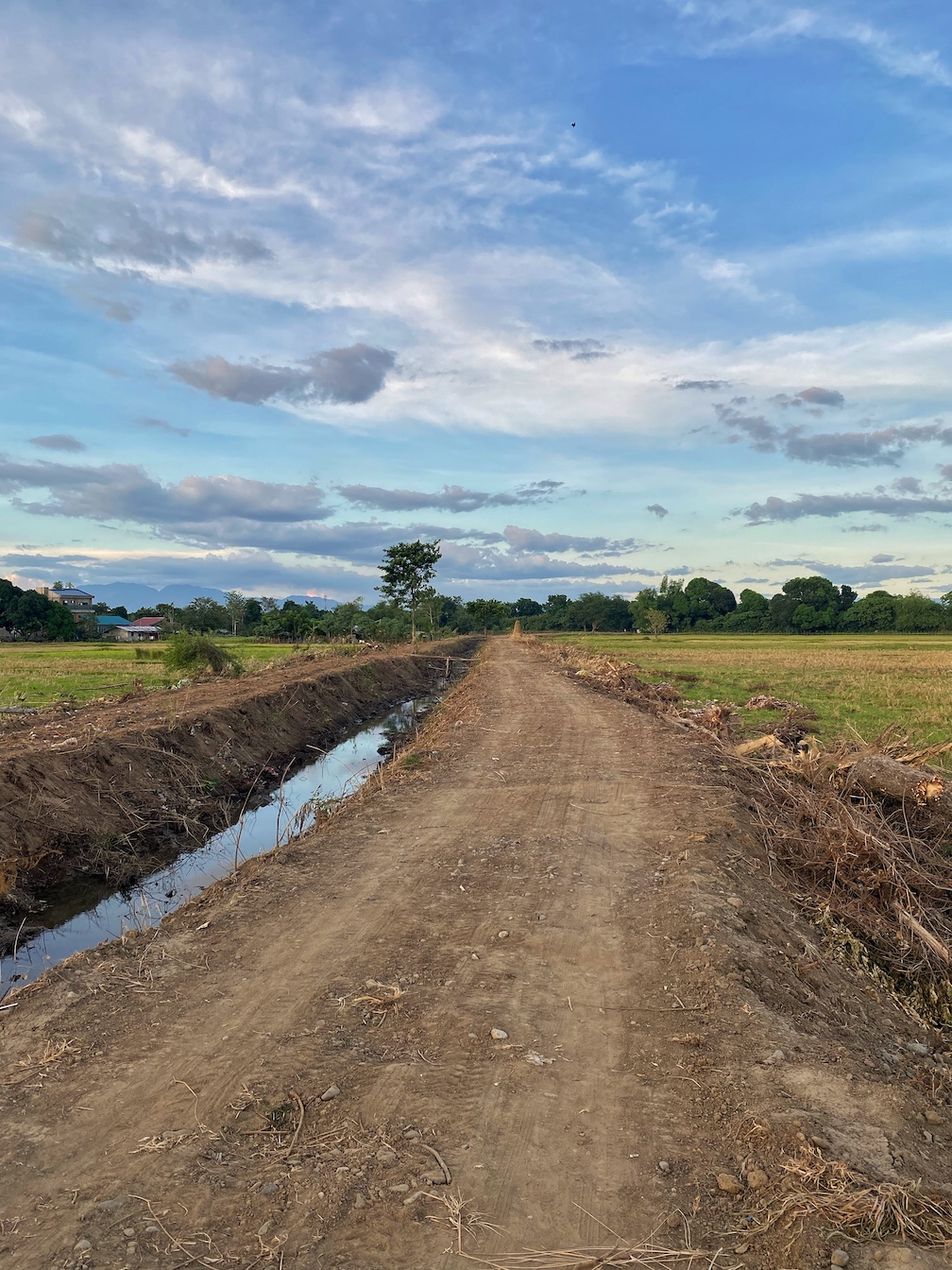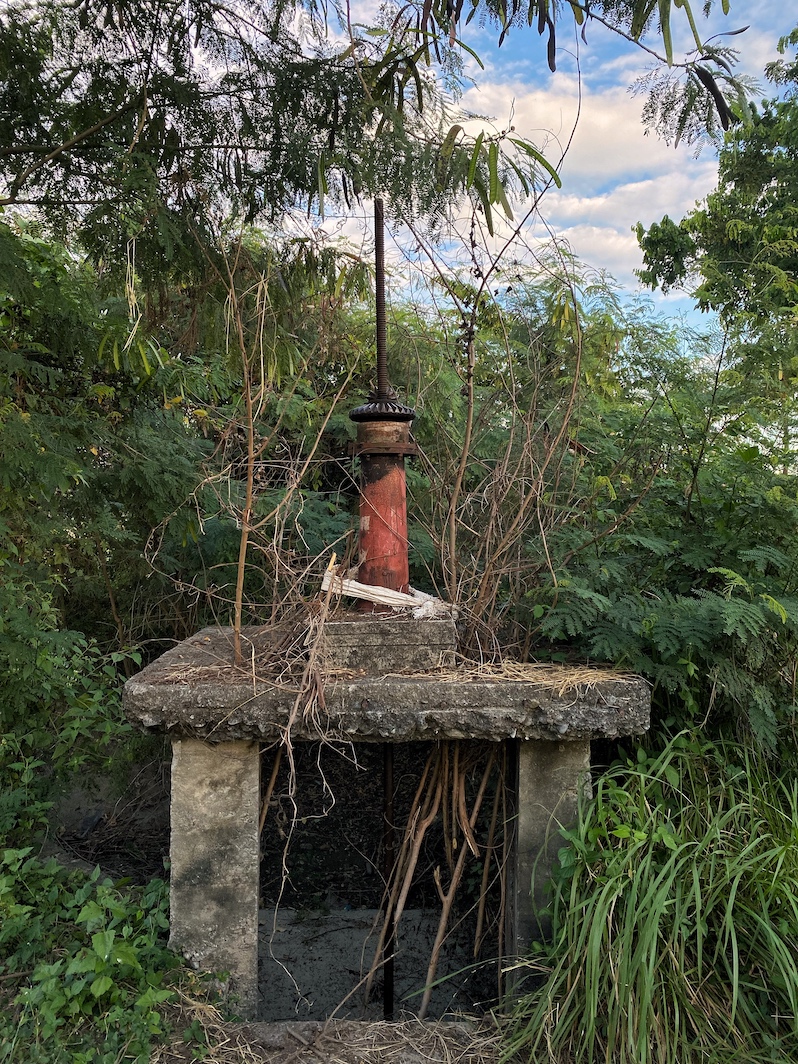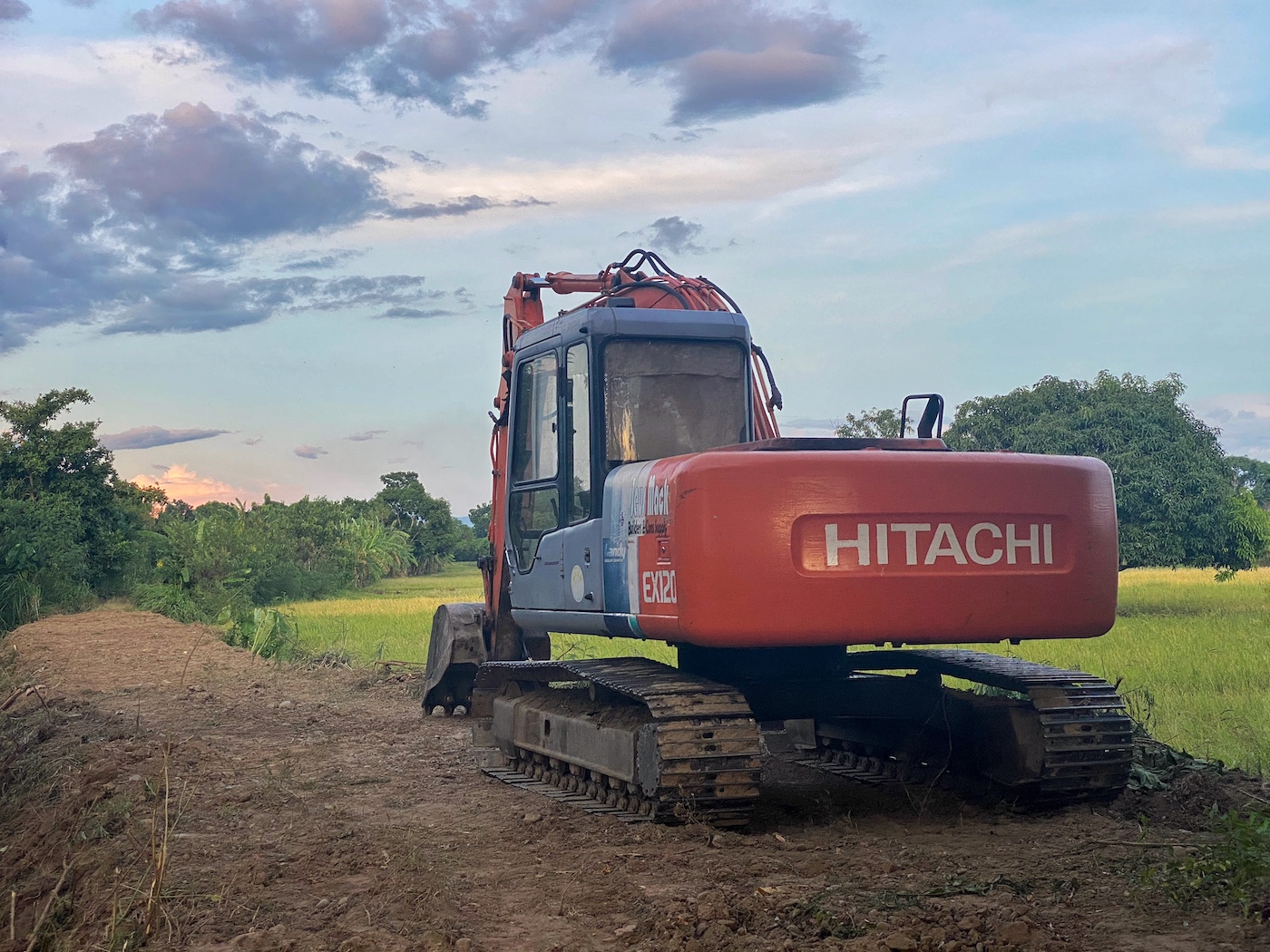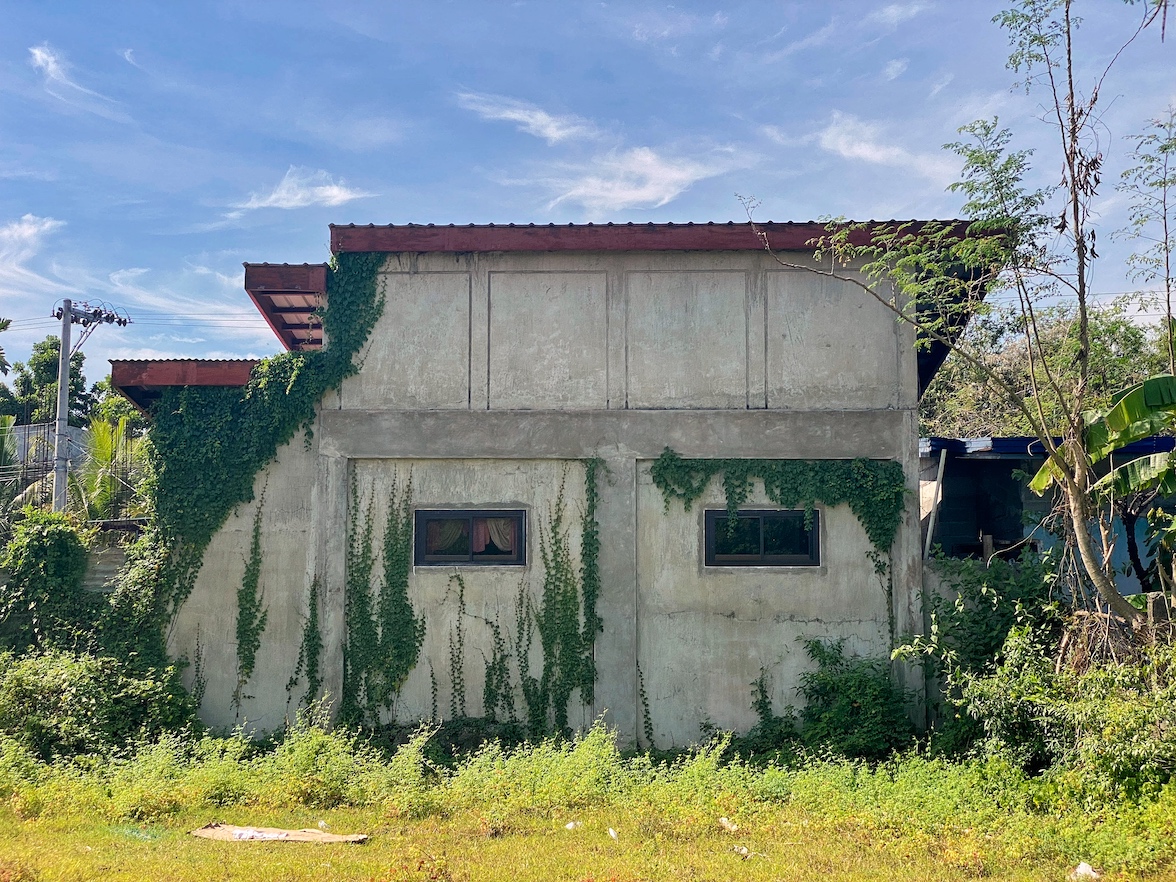
Are we going to lose another dirt road? It looks like it. Not a single tree was left standing on what used to be a heavily canopied path. It took me so long before giving this trail a try. But when I did, I found the solitude I was looking for.
The path was less used than the dirt road that led to it—the dirt road that connected Carusocan and Botao, two remote barangays of Sta. Barbara, Pangasinan.
The Botao–Carusocan road is too narrow. Two motorcycles would fit on it, but not two tricycles. When a tricycle comes, I get out of the way, carrying my bike and standing on the grass below the road. Today, no tricycle passed by.
This dirt road is not entirely made of dirt. Half of it was already cemented, which means it will only be a matter of time before its other half follows. In the rural Philippines, builders intermittently concretize roads—this segment for this year; that segment for next year. Occasionally, it could take up to six years before an entire route is fully concretized; that is because we have to wait for the next elections to elect the leaders who would hopefully finish the project. I find this waiting period blissful and sad at the same time. Blissful for the few more chances to feel the dirt on my feet. Sad because time is running out.

The canopied dirt road is not as busy as the Botao–Carusocan road. Almost no one uses it. I once thought it was just a short road that ended at someone’s house. When I finally walked it, I was surprised to discover that it was twice as long as the Botao–Carusocan road. I walked it intermittently at first, cautiously, fearing where it really led because it was not on the map.
One afternoon, I left my bike at my parents’ house and decided to walk all of it. I started around 3:00 in the afternoon with a backpack that carried my umbrella, a water bottle, and some money. The dirt road led to some houses, some wide pasture lands, and at the end of it was a Catholic walking garden—stations of the cross—which made me surprisingly happy. Again, none of these were indicated in Google Maps. Only locals knew about this road. But that will soon end.
As I walk it again today, now with my bike trailing beside me, I see iron structures lying on the corner of the fields, lower than the trail. Someone has parked a Hitachi excavator at the tip of the trail’s second segment. It has already flattened both parts of the road. They are obviously going to cement the path and turn it into a farm-to-market road. The irrigation canal will be next. For farmers, it is about time. For walkers like me, so long to you, friend.
As I walk, I see a massacre of trees, some probably 10–15 years old. On top of one cadaver, a pied fantail perches. I walk past it. It senses me and flies low over the short grass. Nearby, a devil’s needle dragonfly hovers over what little water is left on the canal. Summer must have been tough. Will the devil’s needle bring the trees’ souls to the afterlife?

When you clear a piece of land covered with trees in the province, you will find underneath them what they have covered their entire life—sachets, diapers, and oxidizing plastics. With them, the fallen trees—their roots, twigs, branches, leaves—are all just garbage polluting the land. As I look at this mess, someone starts singing Masdan Mo Ang Kapaligiran on the karaoke.
I look in front of me, and I see some cows grazing on dry grass. Nearby, goats are eating fresh grass. Above me, a kite hovers—a black kite, almost like a lawin. Beneath, some young boys are running around. One of them was just standing, pulling the kite as he stared at it above.
I continued walking while looking down at the stones, dust, and soil left on this dirt road. These will all be gone soon. Memories came my way—memories of all them dirt roads I walked before. I remembered my favorite dirt road in Sta. Maria, the snake road. I remembered how I spent its last days, how I grieved as I witnessed people flocking spots where I once lied down under the stars, Tiktoking on points where I birthed some poems.
Not long after that road was concretized, I left Sta. Maria for Los Baños.
The pied fantail is back. It now perched on a branch of a small tree that was spared. It ruffles its tail with that delicate motion I find fascinating.
I stop walking. A poem is coming my way.
